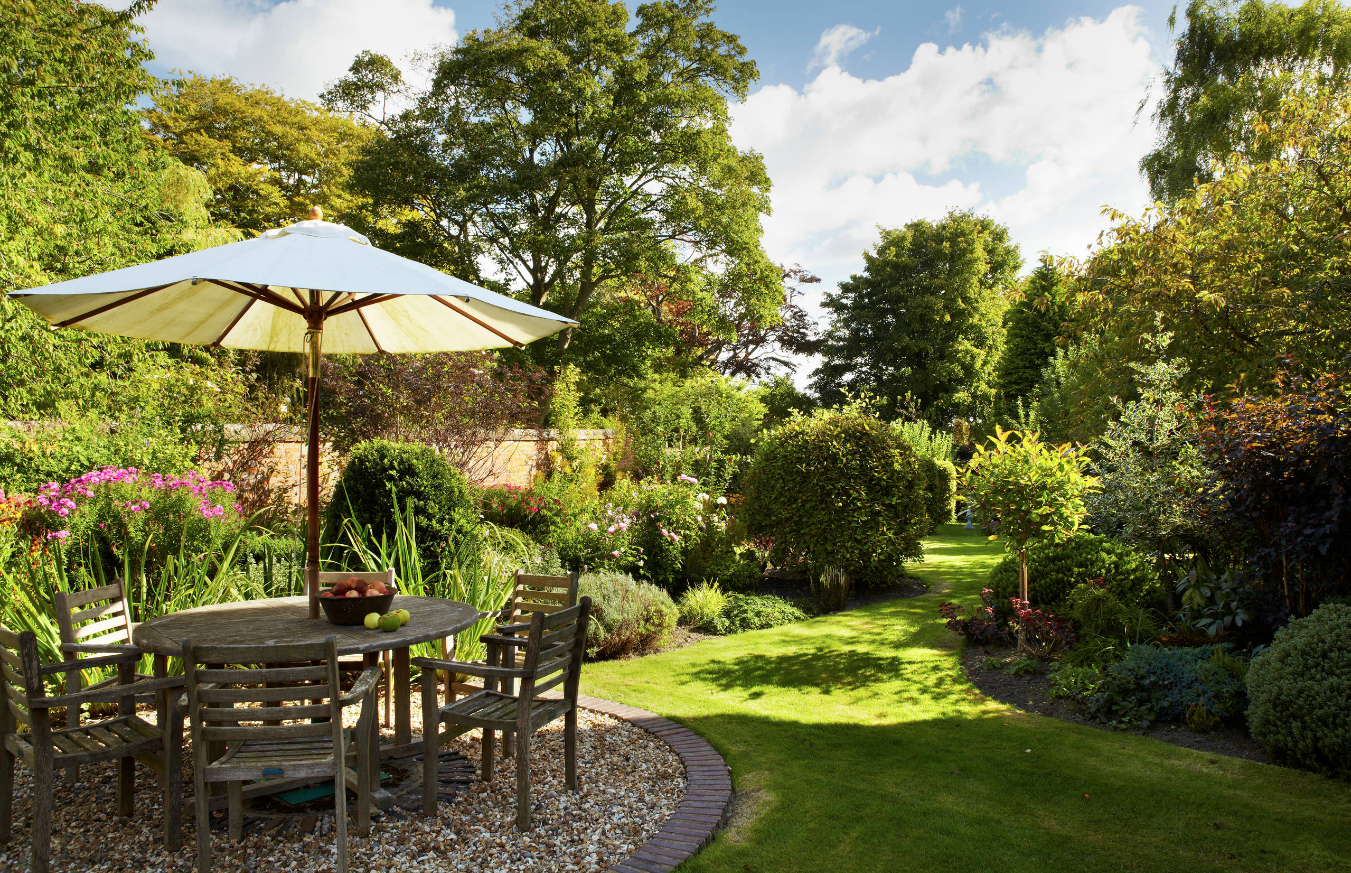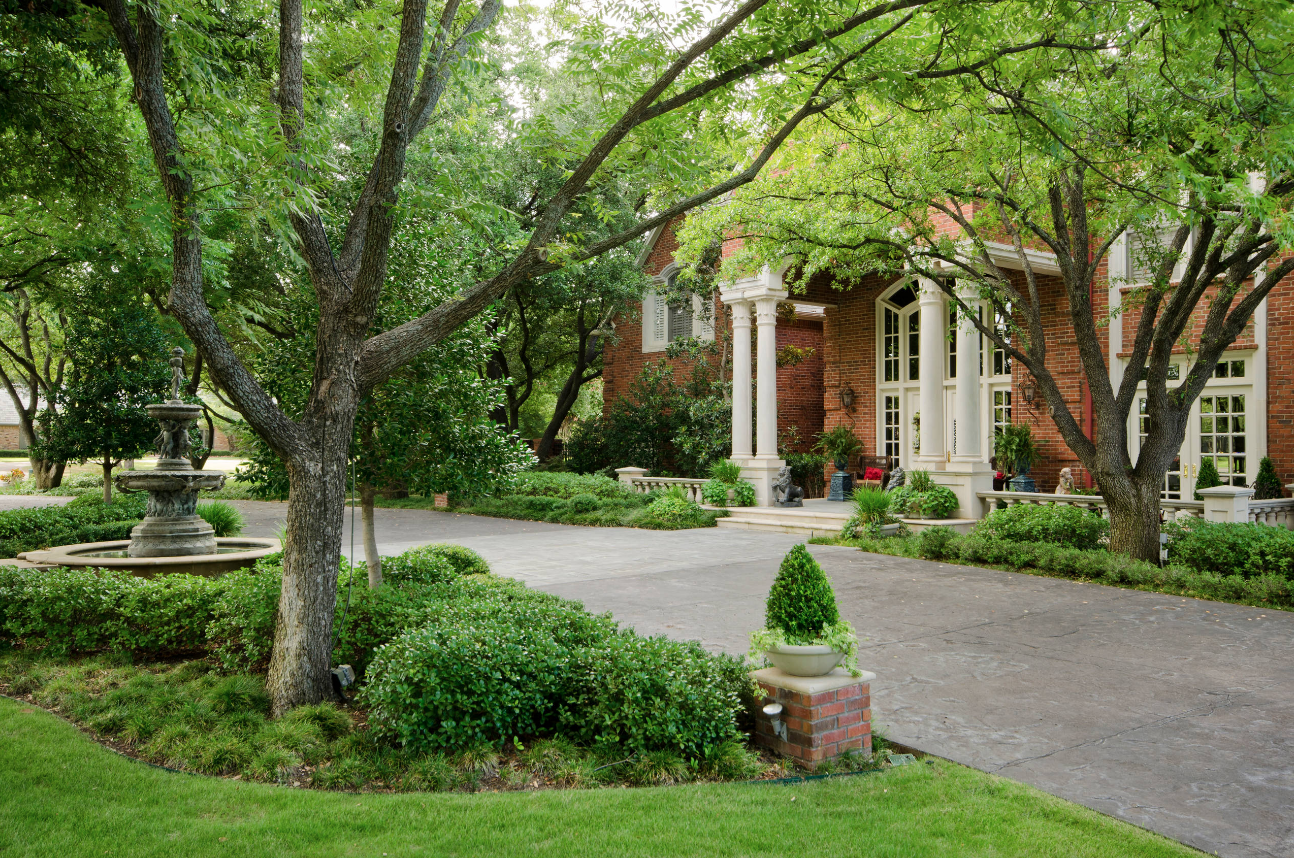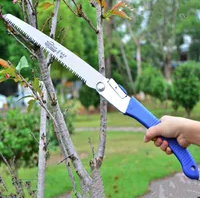How to Keep Your Yard Free of Pests

Keep your yard and garden free of annoying pests this season with our easy pest control ideas!

Photo: Grow Landscapes, Inc.
Pest can mean a lot of things to different people. What might be a welcome guest for some in an annoyance for another. Between squirrels, raccoons, and slugs alone your yard can have a whole host of problems created by the local wildlife. Below are the most effective strategies for dealing with a variety of pests from insects to bats.
Insects
Most insects are easily gotten rid of by using a combination of strong smells and irritants. If you have a flower bed or small garden in your yard, adding a few specific herbs to the mix can convince most harmful insects to look elsewhere for food. The most effective herbs include sage, clove, hops, peppermint, spearmint, catmint, thyme, citronella, and fennel. Not only will they save your plants, but these can also help you feel more comfortable in your yard by driving off mites, ticks, and mosquitoes.
Irritants are also helpful against snails and slugs. A combination of diatomaceous earth and finely ground eggshell sprinkled around plants should deter most of these. It will also work against the mites mentioned above as well as aphids.

Photo: Harold Leidner Landscapes
Swifts and Bats
Most birds and bats aren’t going to cause too much trouble. However, if they are nesting in specialized outdoor equipment, chimneys, drain pipes, or keeping ending up dead in your pool, you’re going to have to do something about them. In most cases, this has to do with bats or the vertically nesting swift. But for issues like pigeons, which can also be a nuisance by nesting in unwanted areas, seeking professional pigeon control services can be the most effective solution.
The main problem here is that swifts are endangered and therefore protected and, in most places, bats and bat habitats are protected, too. The best thing you can do here is to prevent and repel. If you can take away all ideal nesting places and set up something annoying, like an ultrasonic or sprinkler system, the animals should leave on their own and never return.

Photo: Belderbos Landscapes
Large Mammals
Under this category, you have two main pests: raccoons and skunks. Getting rid of raccoons is the harder of the two tasks as they are craftier, and they are more likely to dig and climb and are more determined. Learning how to get rid of a skunk, on the other hand, is relatively straightforward. The only caveat? If either of these animals has given birth recently, you should contact a professional to remove them.
If all you have is a lone raccoon or skunk, you need to take a few steps to deter them from your yard. If done well, the animals should leave and go off to look for a better habitat. To discourage raccoons and skunks, you need to:
- * Secure Garbage and Pet Food
- * Use or Replace Fencing
- * Repair and Block Holes and Gaps Under Porches, Sheds, and Foundations
- * Remove All Other Food and Water Sources
- * Optional: Set Up Motion Deterrents or Sprinklers
 Photo: Via Houzz
Photo: Via Houzz
Small Mammals
Behind wasps, squirrels, chipmunks, and mice are the hardest pests to get out of your yard. Small mammals will be most attracted to yards with fruit and nut trees or bushes. If you can remove any ripened produce and keep fallen fruits and nuts off of the ground, they may move on- or nest in the trees. If you have too much trouble with small mammals, a professional may be able to set up a solution or relocate some of them.
Amphibians
Salamanders, frogs, and toads all love yards with damp, dark spaces to hid or burrow. You can encourage them to leave by increasing drainage, cleaning up brush piles, trimming excess leaf overhang on shrubs and perennials, and eliminating any source of standing water. If possible. Adding sand to the base of any decorative rocks or statuary (including bird baths) is also an effective deterrent.
Carpenter Bees and Wasps
Honeybees and bumblebees are relatively passive and harmless. Carpenter bees, however, can be troublemakers. If you have any exposed wood in your yard, from a solid fence to porch support posts and even your front door, it’s susceptible to carpenter bees. If you stain or paint every wood surface, they may be deterred already, but if the wood is left in its natural, unsealed state, you can expect carpenter bees. The only known deterrents are persistently patching the holes and rubbing down the wood with almond oil.
Wasps, on the other hand, are more a danger to you and any potential guests than they are to the structure of your home. Carefully remove wasp nests as soon as you spot them- they may be suspended, or they may be buried in the ground. The most effective way to prevent wasps from staying in your yard is to set up a few decoys. They can be purchased online or made cheaply and are highly effective given how territorial wasps are.









Leave a Comment